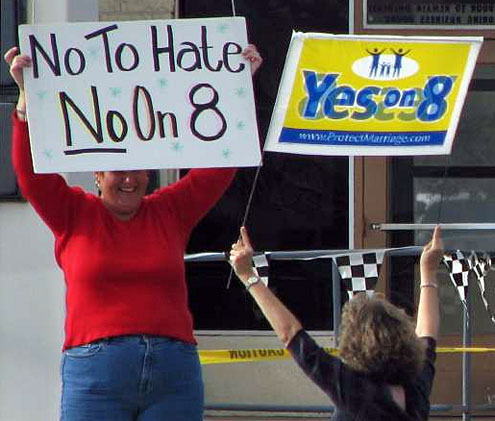California
Â
Opponents of a Kern County ordinance that would outlaw storefront medical marijuana cooperatives and the sale of edible pot products have blocked the law from taking effect.
The Kern County, California Elections Division on Wednesday verified that Kern Citizens for Patients’ Rights had collected 17,350 valid signatures from registered Kern County voters. That’s the number required to block the bans.
Elections workers reached the 17,350 number Wednesday and stopped counting. About 2,662 of the original 26,326 signatures submitted remained uncounted, a cushion of support Kern Citizens didn’t need.
“People are tired of being told what to do — being told ‘Do what I say, not what I do,’” said one supporter.
Â
Zocalo Public Square is hosting an even tomorrow (Wednesday Sept. 21) at 7 pm at Fort Mason Center in San Francisco. Participants will be discussing the question; “How Do We Put The People Back In the Initiative Process?” The event is free, but reservations are recommended. You can reserve a seat here.
 A San Francisco federal judge decided today to release video recordings of last year’s trial over the constitutionality of California’s ban on same-sex marriage.
A San Francisco federal judge decided today to release video recordings of last year’s trial over the constitutionality of California’s ban on same-sex marriage.
Two same-sex couples, along with a coalition of news organizations, asked for the release of the videos, saying there is no reason to keep them secret.
Judge James Ware did leave open the possibility that a higer court could overturn his ruling, and won’t release the videos until September 30th.
As supporters of petition rights call on Gov. Jerry Brown to veto another attack on Californians’ initiative and referendum rights, anti-voter legislators hope that three is a charm.
Citizens in Charge President Paul Jacob tells the story in his weekly column at Townhall.com:
Opponents of new congressional district maps recently drawn by a citizens commission may begin a petition drive for a referendum effort to overturn the maps, the secretary of state’s office announced Friday. Proponents of the referendum, led by Republicans who feel the maps unfairly put their party at a disadvantage in coming elections, now have less than 90 days in which to collect the 504,760 registered voter signatures required to put the matter on the June 2012 ballot.
Â
 Pete Peterson of the Davenport Institute for Public Engagement at Pepperdine University’s School of Public Policy was spot on in his blasting of Democrat California Legislators’ systematic attempts to protect their majority control by smashing the state’s initiative, referendum and recall process.
Pete Peterson of the Davenport Institute for Public Engagement at Pepperdine University’s School of Public Policy was spot on in his blasting of Democrat California Legislators’ systematic attempts to protect their majority control by smashing the state’s initiative, referendum and recall process.
With his veto of SB 448, California Governor Jerry Brown has rejected the state Legislature’s attempt to restrict citizen petitions for the second time in just over a month. Responding to the bill’s draconian requirement that petition circulators wear a badge while talking to voters, the Governor asked:
If it is acceptable to force paid signature gatherers to place identifying badges on their chests, will similar requirements soon be placed on paid campaign workers?
Clearly, Brown saw the absurdity of the badge proposal:
Supporters of initiative rights in California and beyond maintain hope that Gov. Jerry Brown will veto backwards legislation that would force any Californian petitioning her or his government to wear a large badge on their chest, a requirement dubbed a “Yellow Star Law.”
As we’ve reported, the badges required by SB 448 would display information about whether a petition circulator is paid or not: anti-initiative legislators hope that voters will be unlikely to sign petitions when they know the person collecting them is being paid to do so. Less measures on the ballot means less choice for voters, and in turn more power for legislators and the special interests that influence them.
A June poll conducted by good-government groups found that although voters support bids for more transparency in the initiative proces they strongly oppose those that would give the Legislature more power.
As state Democrat Party leaders push yet again to restrict California voters’ access to their state ballot, a new poll finds the public wary of legislative action. According to the L.A. Times:
A June poll conducted by good-government groups found that although voters support bids for more transparency in the initiative process…they strongly oppose those that would give the Legislature more power.
State Sen. Doug LaMalfa has introduced legislation to honor the upcoming 100th anniversary of the state’s initiative and referendum process, saying [emphasis mine]:
The initiative process allows people to circumvent a legislature that is often ineffective, cumbersome and has many priorities that do not reflect the will of the people. In its 100 years, direct democracy has been a game-changer in California politics.
Citizens in Charge Foundation, a national voter rights group focused on the ballot initiative and referendum process, presented California Gov. Jerry Brown with the August 2011 John Lilburne Award for protecting Californians’ right to petition by vetoing Senate Bill 168, which would have prohibited petition drives from paying petition circulators based on their productivity.
Citizens in Charge president Paul Jacob sent the following message to California Governor Jerry Brown after the California Legislature went over the deep end and passed an absurd restriction on petitioners for the second time this year:
Dear Governor Brown,
Today I write to ask you to veto Senate Bill 448. If passed the bill would require citizens petitioning for an initiative, referendum or recall, and receiving any kind of compensation whatsoever, to wear a large badge on their chest saying, “PAID SIGNATURE GATHERER.”
Next month in San Francisco, I’ll participate in a panel discussion entitled, “How Do We Put The People Back in The Initiative Process?”
entitled, “How Do We Put The People Back in The Initiative Process?”
The title is far too negative, as I’ll be pointing out that the people of California are already “in the initiative process,” relishing their power to vote on every measure, defeating even the biggest spending issues backed by special interests, passing needed reforms. Yet, there are important ways to improve the process.
The Sacramento Bee reports that the California Legislature passed Senate Bill 448 and sent it to Governor Jerry Brown’s desk yesterday. Brown now has 12 days to sign or veto the bill.
SB 448 requires only persons circulating initiative, referendum or recall petitions to wear a large badge or sign on their chest proclaiming that they are a “PAID SIGNATURE GATHERER,” if they are compensated in any way for their efforts.
